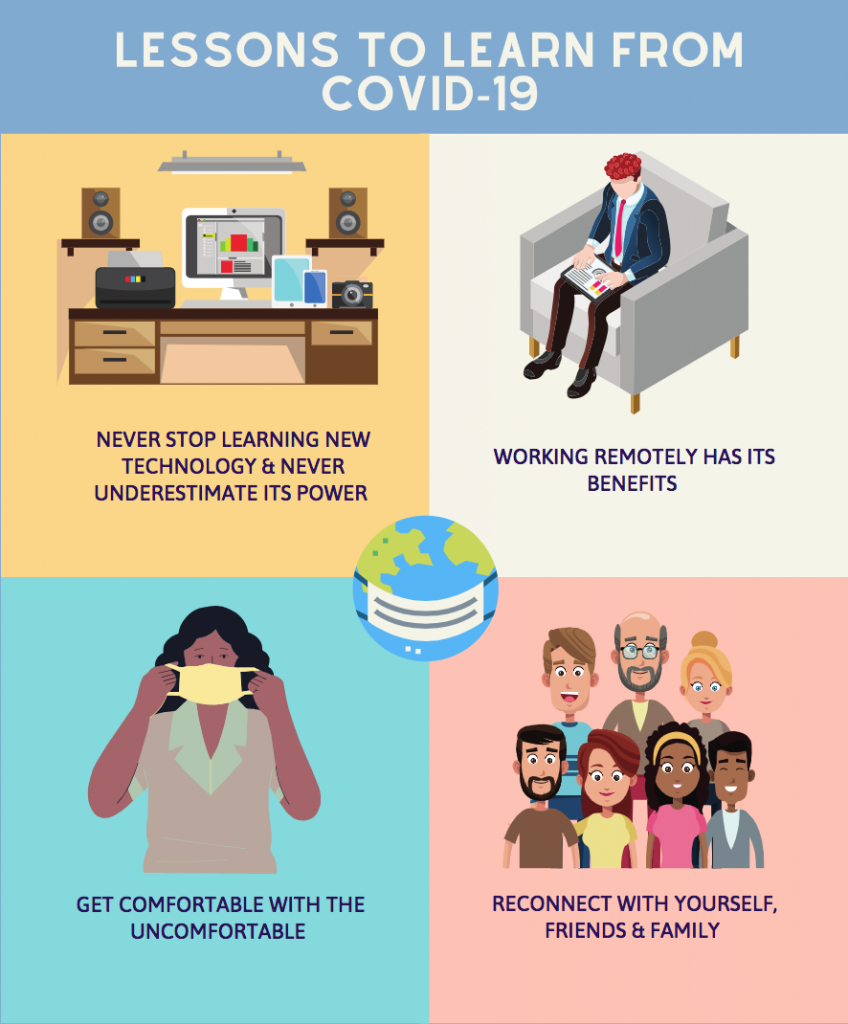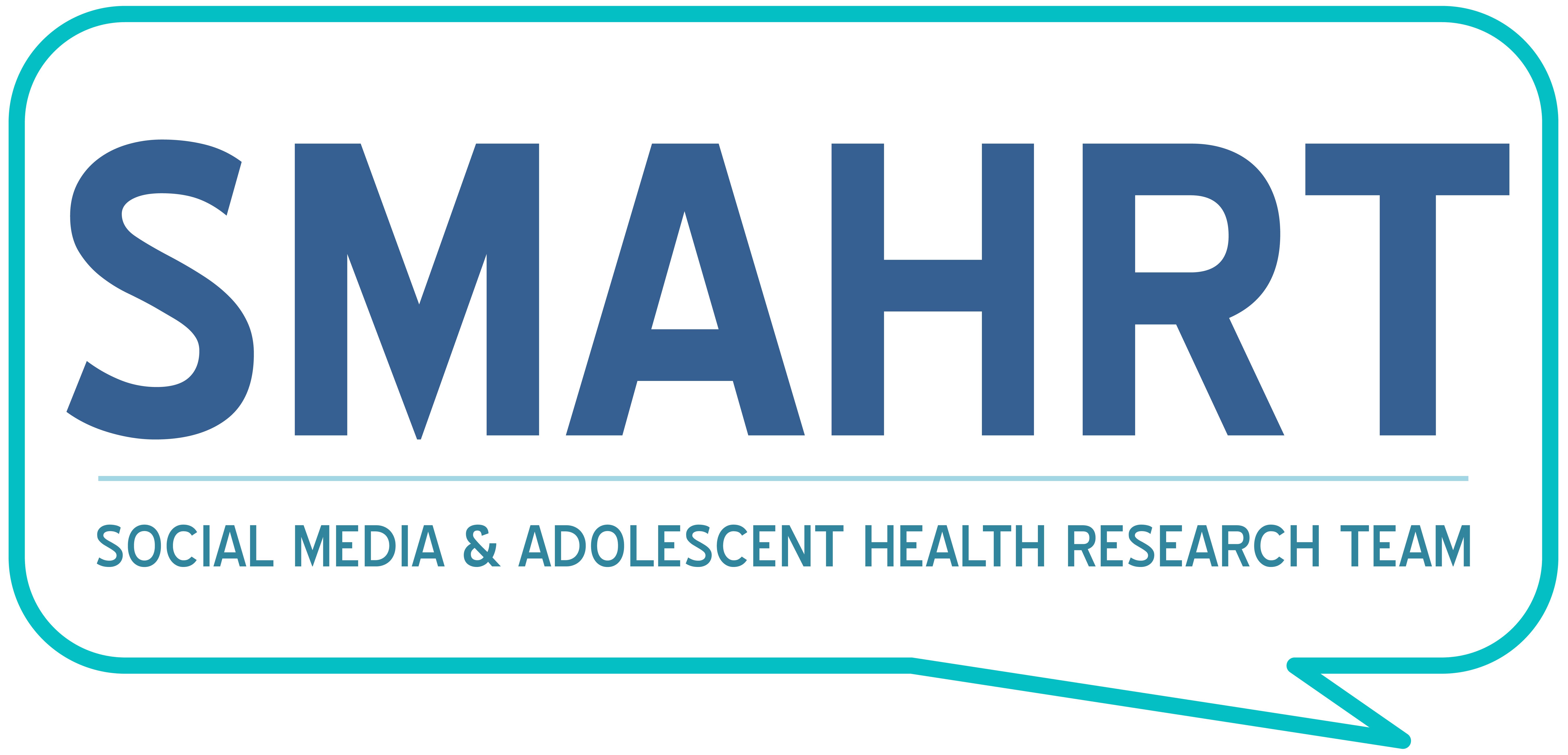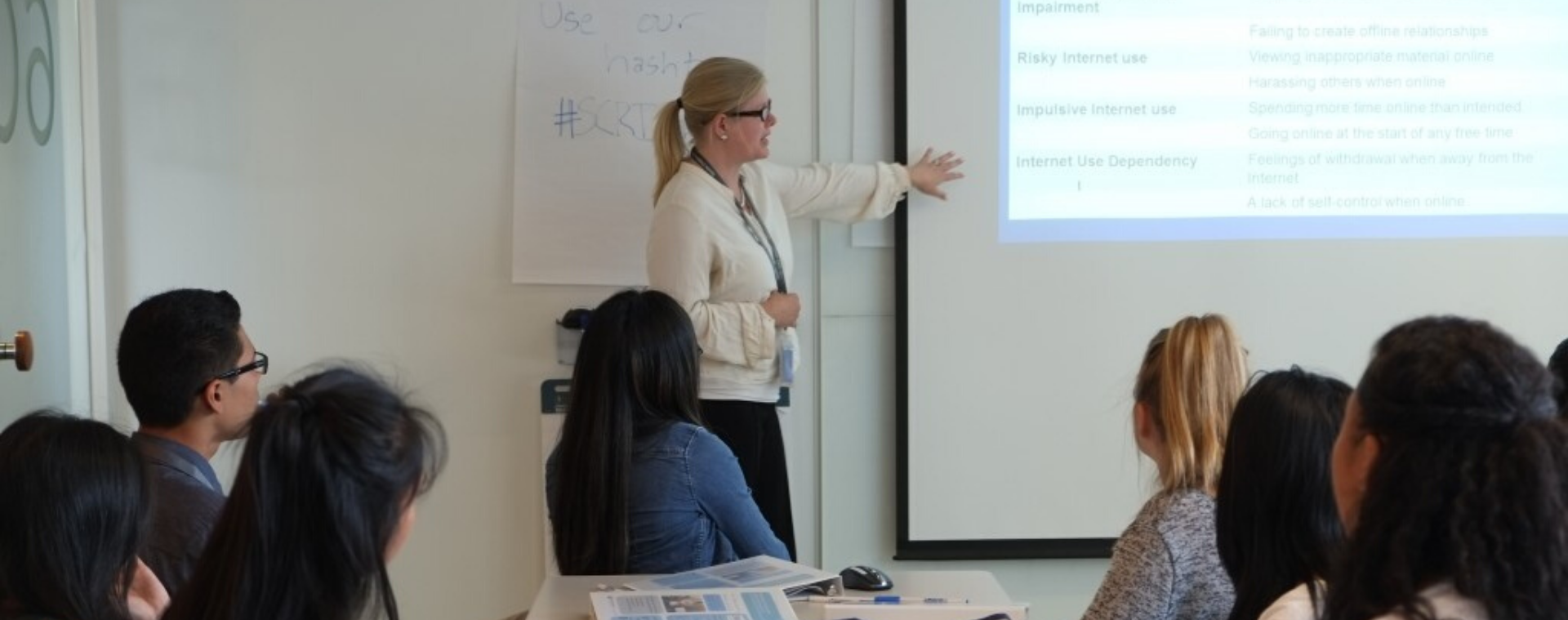By: Elise Goldstein

While the future remains uncertain for returning to work in person, now is a good time to reflect on lessons you may have learned during quarantine. Psychologically, when we hear we are entering a “green phase,” how is our mind responding? Is there anything that you learned that we may grasp onto for a post COVID-19 future?
We must remember that with every setback comes a silver lining.
While many of us are facing hardships, loss and struggle through the COVID-19 Pandemic, we wanted to take a moment to reflect on positive learnings as well.
1. Never stop learning new technology– and never underestimate its power
When classes and work immediately shifted to an online platform, it became a necessity to adapt to any form of technology that the system was using in order to stay tuned. In The New York Times article titled “The Virus Changed the Way We Internet,” it is emphasized that we have suddenly become reliant on services that allow us to work and learn from home. Teachers and students picked up Google Classroom, Zoom, WebEx and other useful resources. Professionals transformed their kitchen tables to a new office. Remote healthcare and psychotherapy are also now the norm, and it is imperative to understand the use of these platforms for health purposes during this time. Technology has allowed society to remain in touch with one another and be able to continue life as best as possible.
2. Working remotely has its benefits
Working remotely has shown to have surprising outcomes, such as increased flexibility, productivity, work-life balance and improved technical skills. The commute into a big city can be avoided, which saves sleep and time. Not to mention, one can save money from public transportation or gas. Working from home also allows for more family time, where pets and family members are the new coworkers. In a Loeb Leadership Study, 67% of respondents answered that they want to continue working remotely after the crisis. It has now been noticed that platforms like Zoom, WebEx, Microsoft Teams and Slack can keep the team connected at all times. SMAHRT Team Member Anna has found the perks of working remotely and says, “For me, the number one benefit is that I get to be responsive to my needs. Maybe I need to go on a walk, maybe I can’t concentrate until the apartment is clean, and maybe there will be mornings like today – where my cat wakes me up at 5am, so I might as well just start work.”
3. Get comfortable with the uncomfortable
We have adapted quickly and efficiently to the extraordinary. We have been programmed to be attentive to the news in order to remain up to date with the latest COVID-19 updates. We have been taught to stock up on food and household items in case the stores run out. We have learned to customize our routine to face the challenges of physical distancing regulations. We have learned the importance of wearing a mask and following social distancing in order to help make our world a healthier place. We have also been able to face uncomfortable conversations regarding the racial injustice in America. It has been time to speak out on social media platforms and at protests, donate money to funds advocating for Black Lives Matter, and spark insightful conversation with family and friends.
4. Reconnect with yourself, friends and family
This time at home has forced many families to live all together again and have young adults move back in with their parents. Of course, it is an immense adjustment, but it can be really comforting and relaxing to be back together. It has also been a great time to take a step back and focus on how to overcome this time personally. Quarantine has allowed many of us to slow down and attack chores that may have been put off for months, as well as take time to get more rest and relaxation. It has also given space to put more time and effort into friendships. SMAHRT Team Member Maggie has been reminding herself of the positives that are coming out of the pandemic and says, “I have been using my time during the pandemic to check in with friends and family members whether that is in person or virtual. I even taught my grandparents how to video call!”
5. Social media can shape the way we connect
Despite the significant increase in screen times, social media has played an extremely positive role in COVID-19. Whether it’s from gathering and sharing news and information or staying in touch with friends and family, it has been a vital element of communication for society. Social media has allowed us to reconnect with long-distance friendships and remain in touch with one another. It has also provided a glimpse of light during times of darkness. According to The New York Times article titled “Viral Challenges Are What’s Keeping Us Occupied,” various Instagram challenges shed light, such as the “see a dog, share a dog.” Online applications such as Email, Snapchat, Twitter, Facebook, and TikTok have also enabled us to share recipes, trends and book recommendations. Platforms have allowed us to see what others have been up to. Most importantly, it has given us a space to speak out, advocate and educate one another on the systemic racism in America and the human rights that everyone deserves.
On the contrary, it has also been a time to “social distance” from social media. It can be a powerful tool, but it is important to remember to not have it overwhelm your day. A Common Sense Media article titled “Start Your Summer Screen-Time Rules Now,” provides resources for screen free activities curated for families.
6. It is never too late to discover a new hobby
Time at home has given us an outlet to learn and discover. Whether it’s a new form of exercise or more time to read books, it has been a strong space to try something new. For example, my family has gotten really into walking. At the end of the day, we always seem to compare the amount of steps that we took during the day. It has been a time to pick up new skills, too. Whether it be learning a new language or a new tool on LinkedIn Learning, it can be healthy to acquire new routines and additions to lifestyle.

